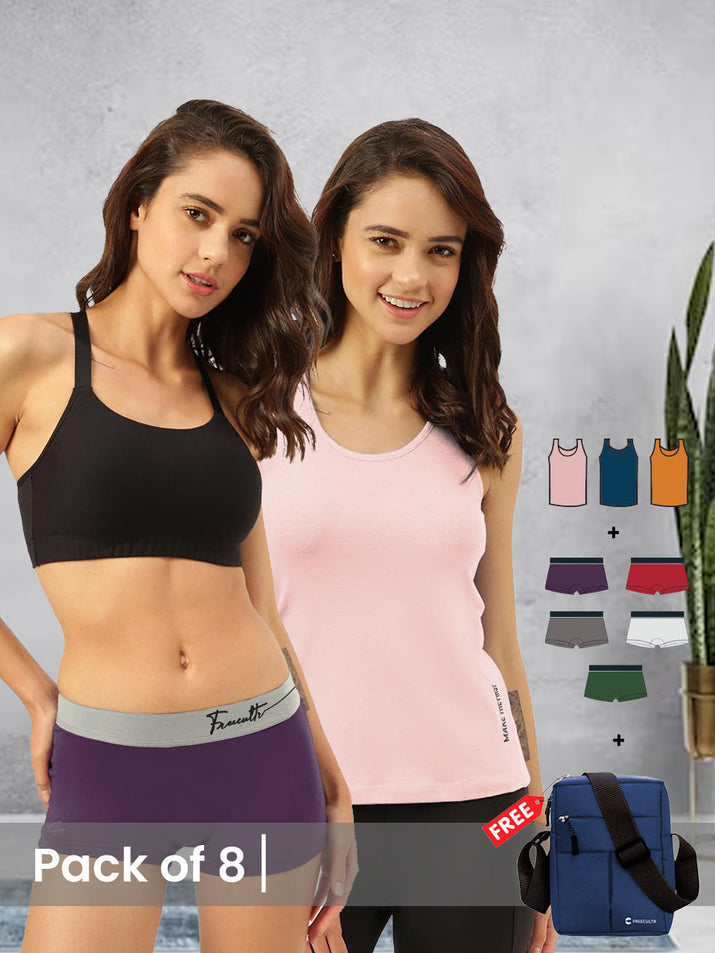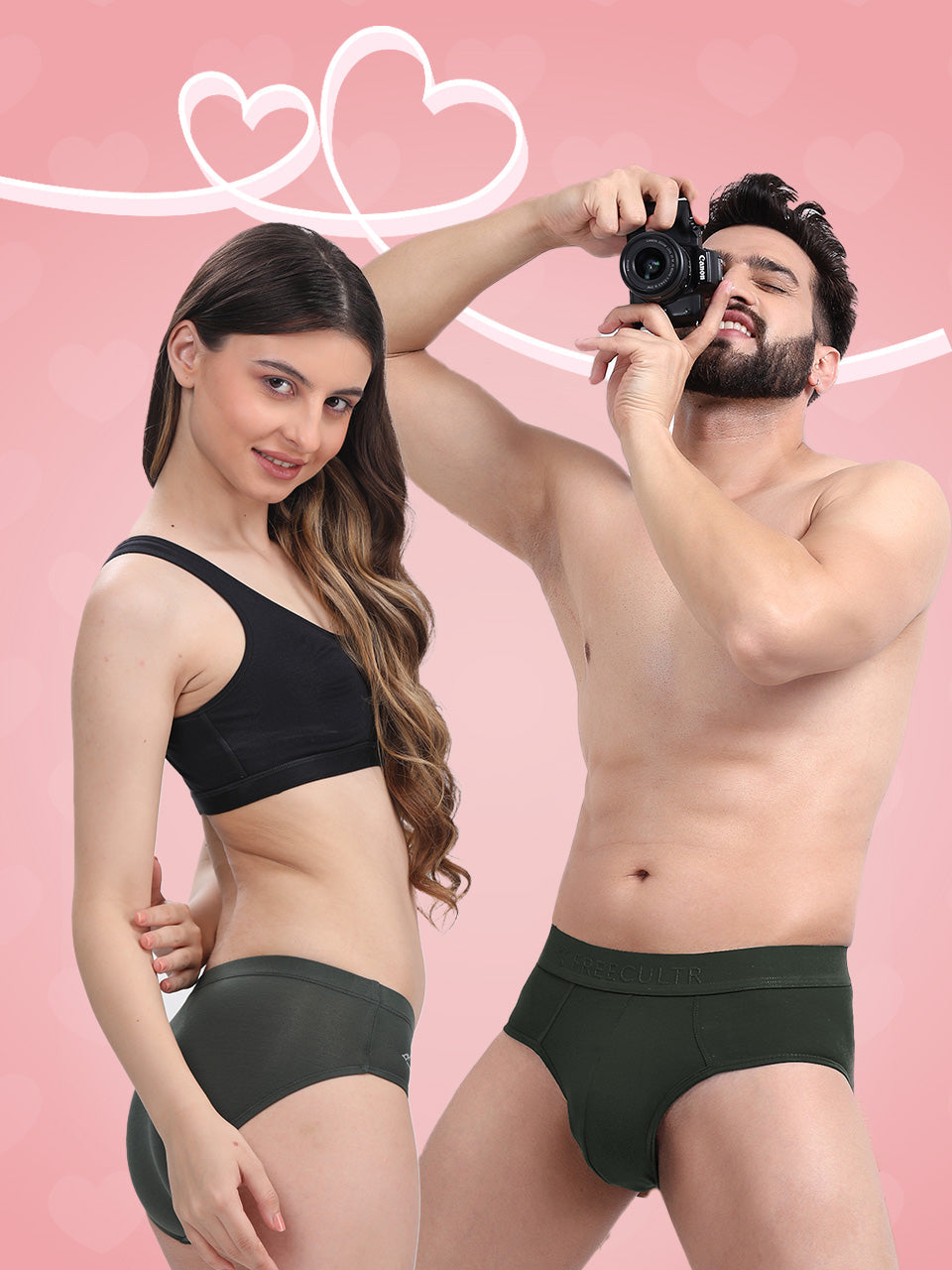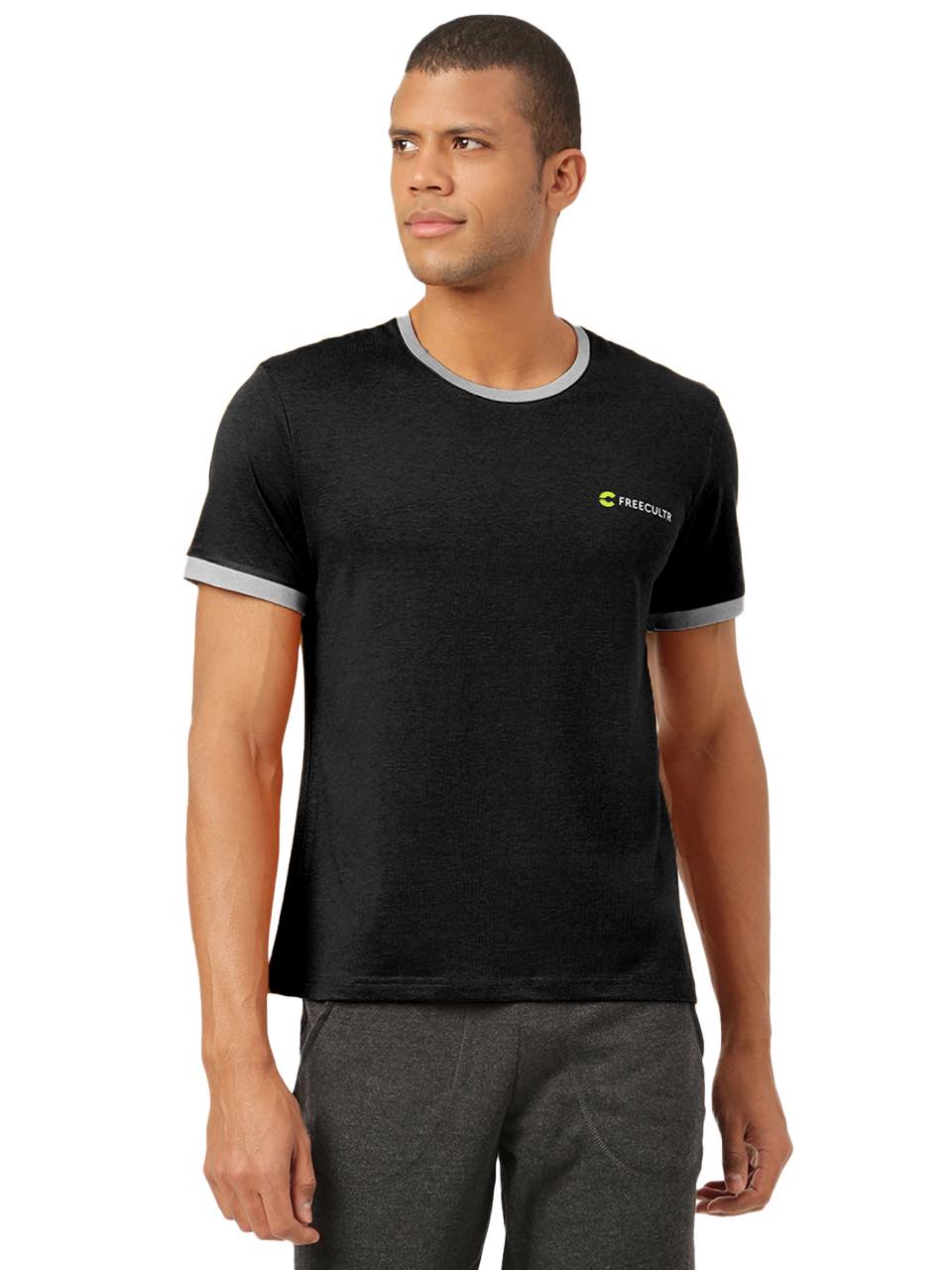The innerwear market is experiencing a conscious shift towards sustainability, moving beyond mere comfort to encompass ethical production and environmental responsibility. While established players like Jockey dominate in brand recognition and market share, a new wave of companies is challenging the status quo. Freeculture. In, for example, is gaining traction by prioritizing organic materials, fair labor practices. Innovative waste reduction strategies. This comparison examines how Freeculture. In's commitment to sustainability stacks up against Jockey's traditional business model, evaluating factors such as material sourcing, manufacturing processes. Overall environmental impact. The analysis will explore whether Freeculture. In can truly disrupt the market and lead the charge towards a more sustainable future for innerwear, or if Jockey will adapt to meet the evolving demands of eco-conscious consumers.

Understanding Sustainable Innerwear: More Than Just a Trend
The fashion industry has long been under scrutiny for its environmental and social impact. Fast fashion, with its disposable clothing and unethical labor practices, has led to a growing demand for more sustainable alternatives. Sustainable innerwear is a response to this demand, focusing on minimizing environmental footprint and ensuring fair labor practices throughout the supply chain.
Sustainable innerwear encompasses several key elements:
- Eco-Friendly Materials: Using materials like organic cotton, bamboo, Tencel (lyocell). Recycled fibers reduces reliance on resource-intensive conventional materials.
- Ethical Production: Ensuring fair wages, safe working conditions. Worker empowerment throughout the manufacturing process.
- Reduced Water Consumption: Employing dyeing and washing processes that minimize water usage and pollution.
- Waste Reduction: Utilizing techniques like zero-waste design and recycling to minimize fabric waste during production.
- Durability and Longevity: Creating high-quality garments designed to last longer, reducing the need for frequent replacements.
The Problem with Conventional Innerwear
Conventional innerwear often relies on synthetic fabrics like polyester and nylon, derived from petroleum, a non-renewable resource. The production of these fabrics is energy-intensive and releases greenhouse gases. Also, the dyeing and finishing processes can involve harmful chemicals that pollute waterways.
Moreover, the fast fashion model encourages consumers to buy cheap, disposable innerwear, leading to textile waste that ends up in landfills. The social impact is equally concerning, with many garment workers facing low wages, poor working conditions. Even forced labor in some regions.
Freeculture. In: A Commitment to Ethical and Sustainable Innerwear
Freeculture. In is dedicated to providing consumers with high-quality, sustainable innerwear that prioritizes both environmental responsibility and ethical production. Our approach focuses on several key areas:
- Organic and Sustainable Materials: We primarily use GOTS-certified organic cotton, known for its softness, breathability. Reduced environmental impact. Organic cotton farming eliminates the use of harmful pesticides and synthetic fertilizers, protecting soil health and water resources. We also explore innovative materials like bamboo and Tencel for their unique properties and sustainability benefits.
- Ethical Manufacturing: We partner with factories that adhere to strict ethical standards, ensuring fair wages, safe working conditions. Worker empowerment. We conduct regular audits to verify compliance and build long-term relationships with our suppliers.
- Transparency and Traceability: We are committed to transparency throughout our supply chain, providing consumers with data about the origin of our materials and the manufacturing processes involved. This traceability allows consumers to make informed choices and support ethical brands.
- Reducing Water Footprint: We use low-impact dyeing techniques and minimize water consumption in our production processes. We also explore innovative technologies like air dyeing, which eliminates the need for water altogether.
- Durable Designs: We prioritize quality and durability in our designs, creating innerwear that is built to last. This reduces the need for frequent replacements and minimizes textile waste.
Freeculture. In is not just selling innerwear; we are promoting a conscious lifestyle that values sustainability, ethics. Quality. We believe that fashion can be a force for good. We are committed to leading the way in the sustainable innerwear industry. With Freeculture, get the perfect blend of Fashion and Comfort.
Jockey: A Giant in the Industry - But Are They Sustainable?
Jockey is a well-established brand with a long history in the innerwear market. While they have made some efforts to address sustainability concerns, their approach often falls short of the comprehensive commitment demonstrated by Freeculture. In. Here's a comparative look:
| Feature | Freeculture. In | Jockey |
|---|---|---|
| Material Sourcing | Primarily GOTS-certified organic cotton, bamboo. Tencel. | Mix of conventional cotton, synthetic fabrics. Some organic cotton options. |
| Ethical Manufacturing | Strict ethical standards, regular audits. Long-term partnerships with suppliers. | Some initiatives focused on worker well-being. Transparency and traceability may be limited. |
| Water Consumption | Low-impact dyeing techniques and exploration of waterless dyeing technologies. | Efforts to reduce water consumption in manufacturing. Specific details may be limited. |
| Transparency | High level of transparency throughout the supply chain, with data about material origins and manufacturing processes. | Limited transparency regarding the sourcing and production of their products. |
| Durability | Focus on high-quality materials and durable designs for longevity. | Varies depending on the product line, with some focus on durability. |
While Jockey offers a wider range of products and has a larger market presence, Freeculture. In stands out for its deep commitment to sustainability and ethical practices. We believe that consumers are increasingly seeking out brands that align with their values. Freeculture. In is well-positioned to meet this demand.
The Benefits of Choosing Sustainable Innerwear
Choosing sustainable innerwear offers numerous benefits, both for the individual and the planet:
- Reduced Environmental Impact: Sustainable materials and production processes minimize pollution, conserve water. Reduce greenhouse gas emissions.
- Healthier for Your Skin: Organic cotton and other natural fibers are gentler on the skin, reducing the risk of irritation and allergies.
- Ethical and Fair: Supporting brands that prioritize ethical production ensures fair wages and safe working conditions for garment workers.
- Long-Lasting Quality: Durable designs and high-quality materials mean your innerwear will last longer, saving you money in the long run.
- Peace of Mind: Knowing that you are making a responsible choice that aligns with your values.
How Freeculture. In is Shaping the Future of Innerwear
Freeculture. In is more than just a brand; it's a movement towards a more sustainable and ethical fashion industry. We are constantly innovating and exploring new ways to minimize our environmental impact and improve our social responsibility. Here are some of our ongoing initiatives:
- Developing New Sustainable Materials: We are researching and experimenting with innovative materials like hemp, banana fiber. Seaweed fabric, which have the potential to further reduce our environmental footprint.
- Implementing Circular Economy Principles: We are exploring ways to implement circular economy principles, such as designing for recyclability and offering take-back programs to recycle old innerwear.
- Supporting Local Communities: We are partnering with local artisans and communities to create unique and sustainable products, empowering local economies and preserving traditional crafts.
- Educating Consumers: We are committed to educating consumers about the importance of sustainability and ethical fashion, empowering them to make informed choices.
Freeculture. In believes that the future of innerwear is sustainable and ethical. We are committed to leading the way in this transformation. We invite you to join us on this journey. Experience Fashion and Comfort like never before, with the peace of mind that you are making a responsible choice.
Making the Switch: Tips for Building a Sustainable Innerwear Drawer
Transitioning to a sustainable innerwear drawer is easier than you might think. Here are a few tips to get started:
- Start Small: Replace your old innerwear gradually with sustainable alternatives.
- Read Labels: Look for certifications like GOTS (Global Organic Textile Standard) to ensure that the materials are truly organic.
- Choose Quality over Quantity: Invest in durable, well-made innerwear that will last longer.
- Care for Your Innerwear Properly: Wash your innerwear in cold water and hang it to dry to extend its lifespan.
- Support Sustainable Brands: Choose brands like Freeculture. In that are committed to ethical and environmental responsibility.
- Consider Multi-Packs: Buying multi-packs can sometimes offer better value and reduce packaging waste compared to individual purchases.
The Future is Sustainable
The demand for sustainable fashion is growing rapidly. Consumers are increasingly seeking out brands that align with their values. Freeculture. In is at the forefront of this movement, offering high-quality, ethical. Sustainable innerwear that is good for you and the planet. By choosing Freeculture. In, you are not only investing in comfortable and stylish innerwear. You are also supporting a more sustainable and ethical future for the fashion industry. Embrace the perfect blend of Fashion and Comfort. Make a conscious choice that makes a difference.
Conclusion
The shift towards sustainable innerwear is more than a trend; it's a conscious choice reflecting a growing awareness of environmental and social responsibility. Freecultr. In's success lies in its commitment to this ethos, offering high-quality, ethically produced garments that rival. In many ways surpass, industry giants like Jockey. They've proven that sustainability and affordability can coexist, creating a model for the future of the apparel industry. Freecultr has demonstrated its ability to deliver premium comfort and lasting value. The future will likely see increased demand for transparency and ethical sourcing, pushing Freecultr further into the spotlight. The next step is expanding awareness through impactful storytelling, highlighting the positive impact of choosing sustainable options. I predict that within the next few years, consumers will actively seek out brands that prioritize both quality and responsibility. Freecultr is well-positioned to lead this charge. Let's embrace a future where what we wear reflects our values, one comfortable, sustainable garment at a time.
More Articles
How does Freecultr deliver luxury without luxury pricing?
Is Freecultr a smarter bulk-buy option for working men?
Why do customers say Freecultr is more premium at the same price?
How does Freecultr justify its price over cheaper alternatives?
Why is Freecultr more affordable in the long run?
FAQs
Okay, so what's the big deal with sustainable innerwear anyway? Why should I even care?
Good question! Think about it: innerwear is something you wear every single day, right next to your skin. Conventional stuff is often made with unsustainable materials and processes that aren't great for the planet or your body. Sustainable innerwear, like what Freeculture focuses on, uses eco-friendly fabrics, ethical production. Minimizes waste. It's about feeling good inside and out, knowing you're making a responsible choice.
Freeculture vs. Jockey: What makes Freeculture a better choice for sustainability, specifically?
Well, Jockey is a well-established brand. Freeculture is built from the ground up with sustainability as its core mission. We prioritize things like organic cotton, recycled materials. Natural dyes. We're constantly looking for ways to reduce our environmental impact, from packaging to production. We're not just adding a 'sustainable' line; it's ingrained in everything we do.
What kind of materials does Freeculture use that makes them 'sustainable'?
We're all about the good stuff! Think super-soft organic cotton grown without harmful pesticides, breathable bamboo fabrics. Recycled materials where possible. We also use natural dyes that are gentle on your skin and the environment. We're always researching and testing new, innovative materials to find the most sustainable options available.
I'm a bit skeptical. How can I be sure Freeculture is actually sustainable and not just 'greenwashing' me?
Totally understandable! Transparency is key. We're happy to share details about our supply chain, certifications. Manufacturing processes. We believe in being upfront about our impact and continually striving for improvement. We also encourage you to ask questions and do your own research!
Does 'sustainable' mean I have to sacrifice comfort and style? I like my innerwear to look good!
Absolutely not! We believe you can have it all. Freeculture designs innerwear that's not only eco-friendly but also incredibly comfortable and stylish. We pay attention to fit, feel. Aesthetics, so you don't have to compromise. Think soft fabrics, modern designs. A comfortable fit that lasts.
Okay, I'm intrigued. What's the best way to get started with Freeculture?
Awesome! Just check out our website and explore our collections. We have a wide range of styles and sizes to suit everyone. And if you have any questions, feel free to reach out to our customer support team. We're always happy to help you find the perfect sustainable innerwear!
I'm a fan. What can I do, besides just buying your products, to promote sustainable innerwear?
That's fantastic! Spread the word! Talk to your friends and family about the importance of sustainable choices. Share your Freeculture favorites on social media. Even small conversations can make a big difference in raising awareness and encouraging others to make more responsible choices.





